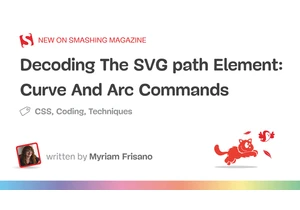Have you ever wondered what happened after CSS3? It’s common knowledge that we never saw CSS4 come after it, yet we have a plethora of new features that have no similar way of defining when they were introduced. The W3C CSS-Next community group is actively searching for better approaches for how we describe the evolution of CSS over time and identify feature sets as effectively as we did with CSS3 way back in 2009 — and you can help. https://smashingmagazine.com/2024/08/time-to-talk-about-css5/
Autentifică-te pentru a adăuga comentarii
Alte posturi din acest grup

Traditional page builders have shaped how we build WordPress sites for years. Let’s take a closer look at Droip, a modern, no-code visual builder, and explore how it redefines th

As always in design, timing matters, and so do timely notifications. Let’s explore how we might improve the notifications UX. More design patterns in our <a href="https://smart-interface-design-patter

CSS has evolved from a purely presentational language into one with growing logical powers — thanks to features like container queries, relational pseudo-classes, and the if() function. Is it still

Bridging the gap between user research insights and actual organizational action — with a clear roadmap for impact. https://smashingmagazine.com/2025/07/turning-user-research-into-organizational-chang

July is just around the corner, and that means it’s time for a new collection of desktop wallpapers. Created with love by artists and designers from across the globe, they are bound to bring some good

As online scams become more sophisticated, Carrie Webster explores whether good UX can serve as a frontline defense, particularly for non-tech-savvy older users navigating today’s digital world. https

On her quest to teach you how to code vectors by hand, Myriam Frisano’s second installment of a path deep dive explores the most complex aspects of SVG’s most powerful element. She’ll help you under
